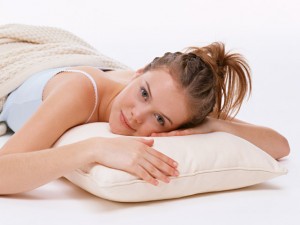Posted on May 12, 2015 by Jenny Cromack
Getting a solid night of sleep can be problematic for many people, and seems to be unspecific to any population. This blog looks at how exercise can help you get a good night’s sleep.
The correlation between poor sleep quality/poor sleep duration and obesity is well documented. Eckel et al., (2013) in a review established that increased food intake during insufficient sleep is a physiological adaptation to provide energy needed to sustain additional wakefulness, yet when food is easily accessible it is common for intake to surpass the need of the body. Interestingly they further reported that when the participants transitioned from an insufficient amount of sleep to sufficient/ adequate amount of sleep, energy intake dramatically reduced, particular of fats and carbohydrates. Reinforcing the relationship between sleep duration/ quality and weight gain/loss.
So now that you know how important sleep is in weight management how can we improve its duration and quality? Not only related to weight management, but sleep quality and duration is also important for energy levels and your general zest for life.
Sleep & Exercise
One such strategy to get a good night’s sleep is through exercise.Baekeland and Lasky (1966) published the first paper on the effect of exercise on the subsequent nights sleep. Three conditions were observed – afternoon exercise, evening exercise, and no exercise. Afternoon exercise resulted in significantly more slow wave sleep stages than the no exercise group, the evening exercise group fell somewhere between the no exercise and afternoon exercise group. However it was not significantly different. The original study was poorly conducted in reality as the modality of exercise was not regulated and the intensity was not monitored.
More recently much more thorough studies have been conducted examine exercise on subsequent sleep quality. Factors such as fitness level, heat load, duration/intensity, light exposure, and sleep schedule have been examined to determine some optimal parameters. Instead of examining sleep quality as a general observation, researchers now tend to break sleep quality down into key elements such as body temperature during sleep, cardiac function, endocrine function, metabolic function and mood.
Body Temperature
There is a strong relationship between body temperature regulation and sleep quality/duration. Slow wave speed sleep seems to be associated with a slight reduction in body temperature. Research seems to suggest that improved thermoregulation or even raising core body temperature more frequently through exercise provides the individual with a greater ability to maintain a suitable body temperature during sleep. Flausino et al., (2012) recently examined different intensities and durations of exercise on body temperature during subsequent sleep, they reported that the most positive impact of exercise on slow wave sleep and rapid eye movement sleep was observed during moderate intensity exercise (60% Vo2 Peak) lasting 30 minutes.
Cardiac Function
The relationship between daytime exercise and its impact upon sleep has been studies significantly over a 30 year period. During sleep any changes in heart rate can be attributed to automic activity as essentially the body is stationary. A recent meta-analysis suggested that frequent exercise improved vagal modulation, resulting in a heart rate below 60 beats per minute during rest. It is believed that this could transfer into improved parasympathetic control, and therefore improved sleep.
As can be seen above their is a growing body of evidence showing a link between improved sleep quality and chronic exercise. However exercise may only form part of the equation of enhanced sleep quality, the correlation between nutrition and sleep cannot be overlooked. Nutrition and sleep is an extensive research area with thousands of variables and parameters.
Nutrition & Sleep
Recently Awad et al., (2013) examined the effect of nutrition on sleep. They interestingly reported that females had a negative correlation between REM sleep and fat intake, whilst males had a positive correlation with fat intake and REM sleep. They report that low carbohydrate diets increase slow wave speed sleep yet decrease REM sleep. It is therefore believed there is a connection between lipid homeostasis and REM sleep. The difference in this study between males and females is unknown, in this particular study it could be attributed to the fact that males had a greater recreation activity level than the females.
In summary it is clear that exercise and nutrition have profound effects on getting a solid night of sleep, if you find you’re waking frequently or struggling to fall asleep at all, it could be that your not physically active enough or consuming a diet that isn’t suitable for your physiology. Start by making a sleep diary, make note of your best/worst nights sleep and record the previous exercise, diet. I have a hunch that poor night sleep will come following, unhealthy days.


